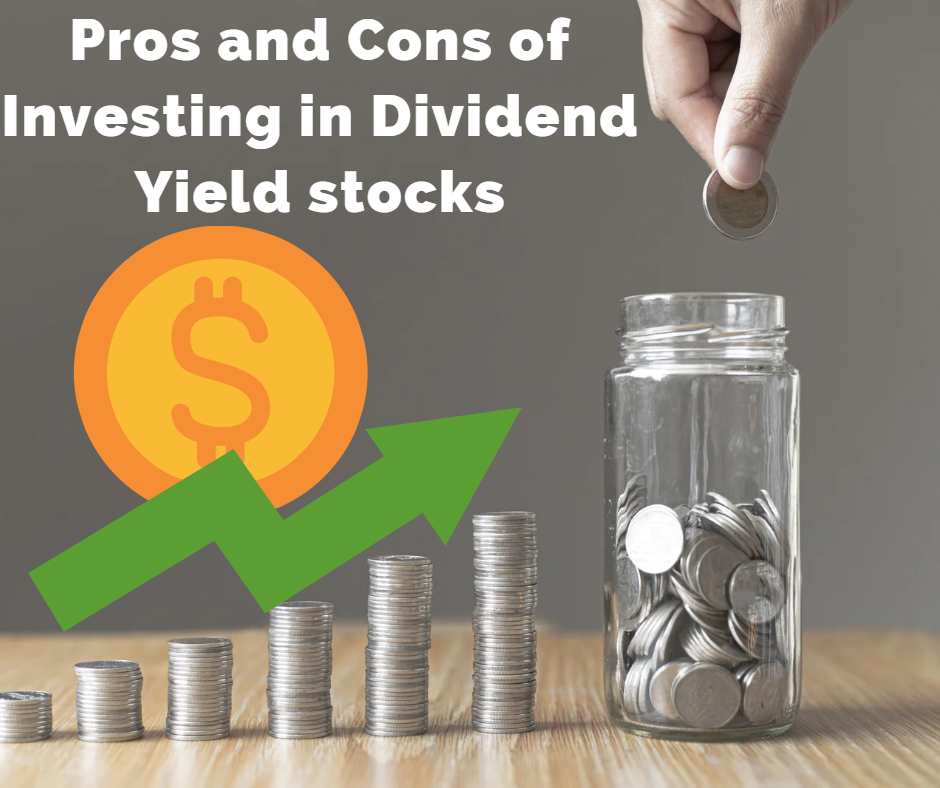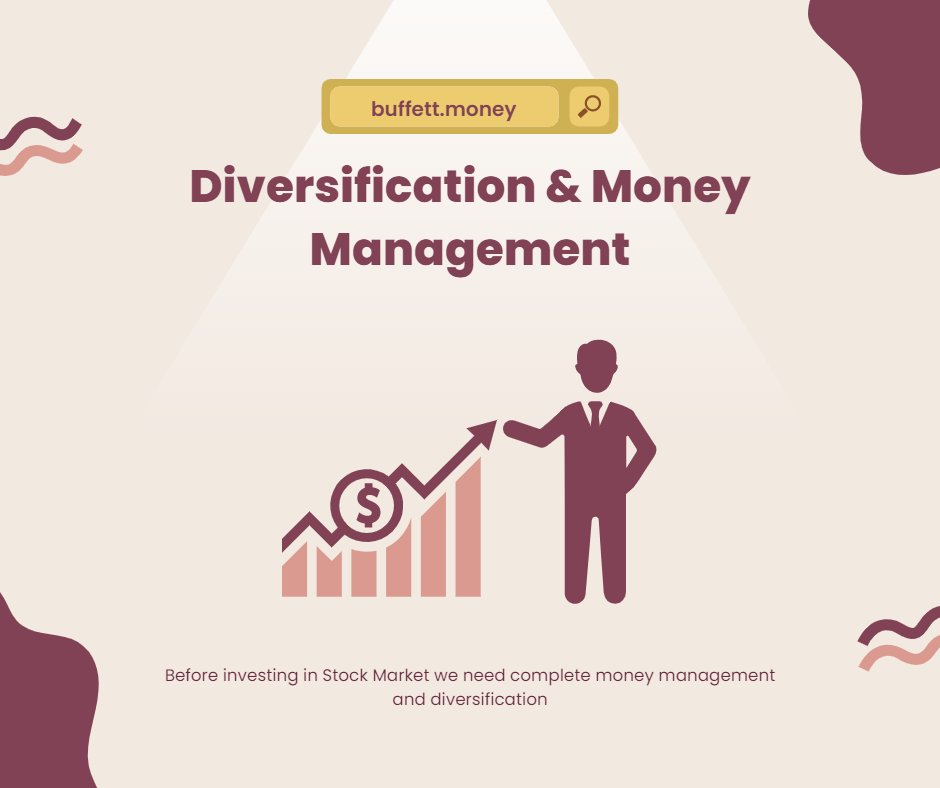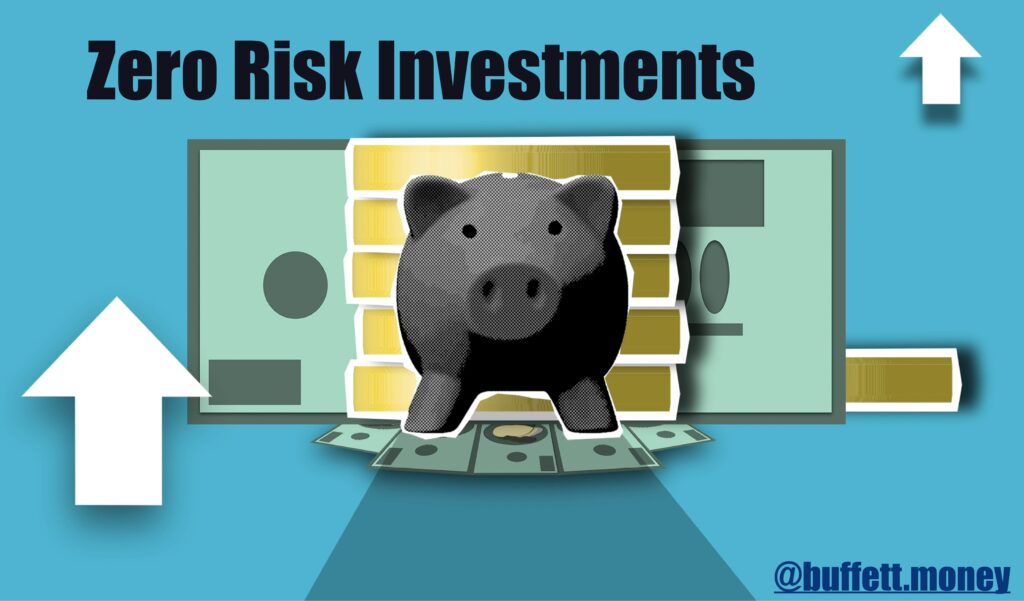
When we thought of investment in companies for capital appreciation we get many options to invest in. In those options there is a type of companies which pays high dividend yield. So, in this article we will study advantages and disadvantages of investing in high dividend yield stocks. Let’s wrap up in next 5 minutes.
Table of Contents :
- What is Dividend
- What is dividend yield
- Pros of dividend yield stocks
- Cons of dividend yield stocks
- Conclusion
Dividend :
Dividend is that portion of the profit which is paid to its shareholders by the company. It is paid quarterly or annually as an interim or final dividend. A company can invest its profit in the company operations for better sales or pay it to its investors for making the interest of investors towards the company. Dividends can be issued in various forms such as cash, stocks or any other form.
Dividend yield :
Dividend yield is the percentage or ratio which expresses how much a company pays as dividend to its shareholders in respect of its stock price. High the dividend high will be the dividend yield. The dividend yield is an estimate of the dividend-only return of a stock investment.
Dividend Yield= (Annual Dividend / Share Price )x 100
Pros of high Dividend yield stocks :
Investing in stocks with a high dividend yield can offer several potential benefits, including:
1. Regular Income :-
A high dividend yield stocks means that the company is paying out a significant portion of its profits as dividends. As an investor, this can provide you with a regular stream of income, which can be particularly attractive for retirees or those looking for passive income.
So, when an individual needs a regular income then he can invest in high dividend paying stocks. For patience investors high dividend paying stocks can be good option.
2. Potential for capital appreciation :-
A high dividend yield stock may also have the potential for capital appreciation, meaning that the stock price could increase over time. This can provide investors with the best of both worlds – regular income from dividends, as well as the potential for long-term capital gains.
Because we all know that in the long term if a company has potential then its share price will definitely rise. So, it is the biggest advantage of dividend paying stock. But always remember that if a stock is regularly paying dividends then its share price will not grow at a high pace.
3. Defensive investing :-
High dividend paying stocks are often considered to be more defensive in nature, meaning that they may be less volatile and more resilient during market downturns. This is because companies with a history of paying high dividends tend to be more established and financially stable, which can be reassuring to investors during turbulent times.
4. Long-term returns :-
Historically, dividend-paying stocks have tended to outperform non-dividend-paying stocks over the long term. This is because companies that pay dividends are typically profitable and have strong financials, which can translate into sustainable long-term growth.
It is also a sign of goodwill for the company. A high dividend can be paid by the companies which are profitable which means that it can be one of the factors to choose a company & can be used as a ratio to find fundamentally strong companies.
Cons of high Dividend yield stocks :
While investing in high dividend yield stocks can have several potential benefits, there are also some drawbacks to consider:
1. Limited growth potential :-
High dividend yield stocks are often mature companies with limited growth potential. They may not reinvest as much of their profits into the business to fund growth initiatives or research and development, which can limit their ability to expand and innovate.
This is one of the big drawbacks due to which big investors try to avoid high dividend paying stocks. Because when a company pays dividends then it reduces its cost due to which its future potential affects. This impacts the growth of the company.
2. Vulnerability to dividend cuts :-
Companies that pay high dividends may be more vulnerable to dividend cuts during economic downturns or periods of financial stress. This can impact your regular income stream and the value of your investment. This creates negative sentiment for companies due to which investors can pull out money from the company and due to which its price and value will get affected.
3. Interest rate sensitivity :-
High dividend yield stocks can be sensitive to changes in interest rates, as higher interest rates can make other investment options more attractive to investors. This can cause the stock price to fall and the dividend yield to become less attractive. And once the price of stock falls then company’s business might also have impact of this.
4. Market risk :-
All stocks are subject to market risk, meaning that their value can fluctuate due to factors such as economic conditions, geopolitical events, or company-specific issues. High dividend yield stocks are not immune to market risk and can experience significant price declines during market downturns. With that decline the company may not pay dividends and the option of regular income can be over.
5. Tax implications :-
This is one of the major disadvantages of dividend paying stocks. If you receive a dividend as income then you have to pay tax on it. Whereas if rather than paying tax if the profits are reinvested on business then it will reflect on share price where only tax on long term capital gains is to pay.
Dividends are typically taxed at a lower rate than other types of investment income, they are still subject to taxation. This can impact your overall returns and may require careful tax planning.
Conclusion :-
It’s important to evaluate both the potential benefits and drawbacks of investing in high dividend yield stocks and to consider your individual investment goals and risk tolerance before making any investment decisions.
However, it is important to note that high dividend yield stocks can also be a red flag for potential problems with the underlying company, such as declining profits or an unsustainable dividend policy. As with any investment strategy, it is important to conduct thorough research and analysis before investing in high dividend yield stocks.
If you need a regular income and normal capital appreciation then you can go with high dividend paying stocks. But if you want a big capital appreciation rather than regular income then you should go with high growth stocks. For long term capital growth dividend paying stocks is not a good option.
This is all for information and educational purpose. Consult your financial advisor before investing or taking any decision.
Thank You
Happy Investing




Pingback: Advantages and Disadvantages of high growth stocks - Buffett.Money